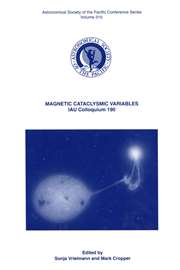No CrossRef data available.
Article contents
Teaching Human Culture Through Astronomy
Published online by Cambridge University Press: 12 April 2016
Extract
One of the phenomena in the development of science in the second half of the twentieth century is the appearance of complex branches of knowledge. This fact along with the accelerated increase of science information called forth well-known integrative processes in education. One of the most widely spread forms of these processes is the incorporation of one school subject in another. In such a way, astronomy in secondary school is incorporated in the subject of physics and sometimes in geography and mathematics. The argument for this, if there exists one, is that nowadays astronomy is astrophysics, i.e., physics of celestial bodies, or that the cosmographical function of astronomy resembles the function of geography.
In this paper, we make an attempt to adhere to the thesis that astronomy is a school subject with wider connections in the human sphere than with only one branch of science (Nikolov, 1986). As a consequence, if the school subject astronomy is incorporated only in a specific discipline, this would limit the possibility of teaching facts or phenomena of other spheres of the human spirit.
- Type
- 2. Astronomy and Culture
- Information
- International Astronomical Union Colloquium , Volume 105: The Teaching of Astronomy , 1990 , pp. 47 - 50
- Copyright
- Copyright © Cambridge University Press 1990


